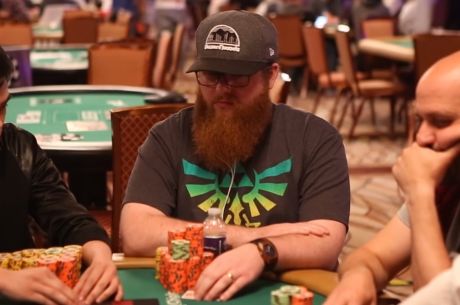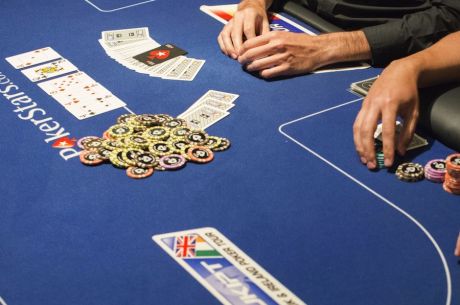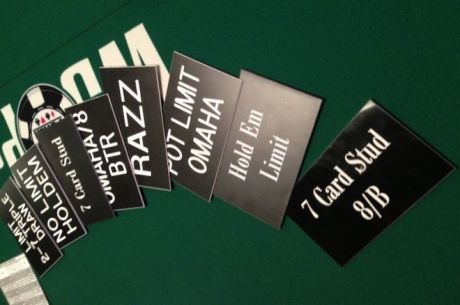Hand Review: Collin Grubaugh Under-Reps on the Flop at a Final Table
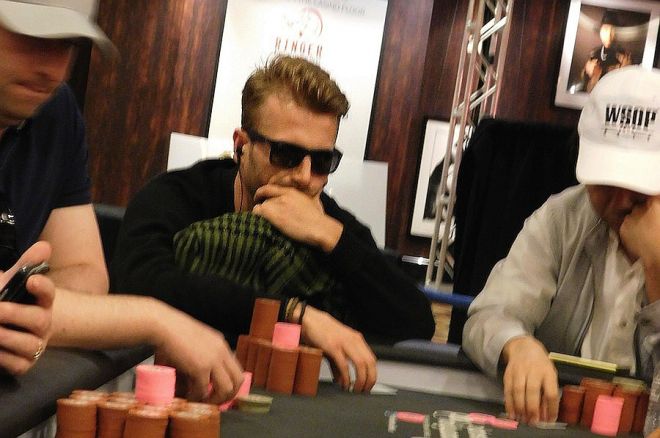
Covering live poker tournaments for a living affords me the opportunity to see countless thousands of hands played out, many of which offer interesting and potentially valuable insights into how players �� both amateurs and professionals �� play the game. In this ongoing series, I'll highlight hands I've seen at the tournaments I've covered and see if we can glean anything useful from them.
The Scene
Today we're going to look at a hand from this week's iNinja World Championship at Planet Hollywood, a marathon event for which Day 2 stretched well into the next day. It was a $250,000 guaranteed tournament with a $400 buy-in, drawing a recreational-heavy field of 1,140.
This hand comes from deep into the night, with just seven players remaining in contention for a first-place prize of more than $73,000. It was late in Level 31 (60,000/120,000/20,000) and we picked up the action on fourth street between Collin Grubaugh (pictured above) and Joshua Steiner.
The Action
The board read 3?Q?2?6? after the turn, and Grubaugh put in a bet of 335,000 from the button. Steiner was in the cutoff and check-raised all in, putting Grubaugh at risk for just over 2.4 million. Grubaugh went deep into the tank and the clock was eventually called. With nine seconds remaining before his hand was dead, he dropped in some chips to call.
Grubaugh: K?Q?
Steiner: 7?6?
The dealer brought forth the 4? from the deck, no help to Steiner.
"I checked the flop, I played my hand so deceptively," Grubaugh said after letting out a deep breath. "I just couldn't fold."
Concept and Analysis
We didn't see the preflop action here but we know from Grubaugh's quote that he decided to check back the flop with top pair, good kicker. This is an example of under-representing a hand �� that is, making it appear weaker than it actually is.
Betting top pair is usually the standard play for most in this spot, and it's perfectly fine, but it's also not a bad spot to check back. Consider that Grubaugh's opponent came into the pot from late position, so he likely has some weaker hands in his range.
Also, look at the texture of that flop �� 3?Q?2?. There's just not much out there besides a possible flush draw. The only cards Grubaugh probably doesn't want to see on the turn are hearts or aces.
It's helpful that the other overcard on this flop (a king) would actually improve Grubaugh, so there's less reason to protect his hand. Plus, with position, he can control the size of the pot more easily if a bad card does come.
One of the ways under-representing can help you get value later in the hand is if your opponent calls subsequent bets with a weak holding, like ace-high or a small pair, thinking you would have shown some aggression earlier if you had something.
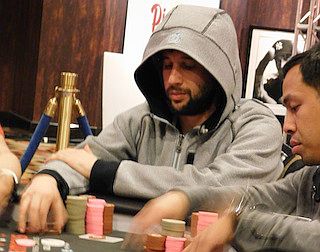
Another way it can get you value is from opponents who think they can get you to fold, figuring you've shown weakness and they can force you out of the hand with some strong betting.
That's exactly what happens in this hand, as Grubaugh makes a value bet on the turn with top pair, likely hoping to get called. Instead, he gets raised, and he's suddenly playing for his stack. It's a tough spot, but you have to get in your opponent's head a little and think about what he thinks you have.
The shove is huge compared to the size of the bet. If you haven't represented a strong hand, why would your opponent make a big shove like this if he had a big hand? So you fold and don't pay him off?
In the end, Grubaugh summons the nerve and makes the big call for his stack, being rewarded with a huge pot when his opponent misses his many outs. Steiner made it tough on him, but Grubaugh followed through with his plan, knowing he had laid the groundwork with deception on an earlier street.
It paid off too, as Grubaugh went on to take the lion's share of a three-way chop and bank $63,876.
Want to stay atop all the latest in the poker world? If so, make sure to get PokerNews updates on your social media outlets. Follow us on Twitter and find us on both Facebook and Google+!

